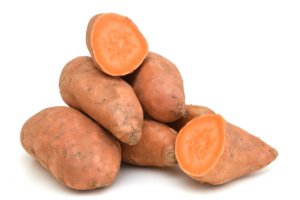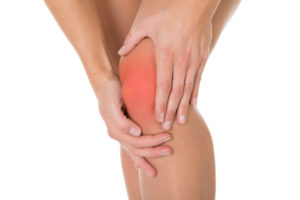
The Secret of Good Gut Health
...
Read More
...
Read More

Articles with references download here: Fast Track to Health Web 2018 Your body is amazingly resilient and is programmed to heal when given the right environment. Obtaining your optimum health may require you taking a major timeout from current unhealthy lifestyle habits and then working to create new habits that keep you healthy through your entire lifespan. Long hours on the freeway, sedentary jobs, time pressures, stress, lack of sleep, pollution, too much TV, high fat, high sugar diets, too few fruits and vegetables… These habits add up to a great assault on your health and can lead to modern day illnesses like obesity, asthma, diabetes, heart disease, cancer, fatty liver, etc. Although there are medications to manage these illnesses, it is vastly more beneficial for you to alter your lifestyle in ways that keep you healthy and prevent the need for medications. Your body is amazingly resilient and is programmed to heal when given the right environment. Obtaining your optimum health may require you taking a major timeout from current unhealthy lifestyle habits and then working to create new habits that keep you healthy through your entire lifespan. INTERMITTENT FASTING FOR HEALTH One healing modality that provides a timeout from your usual lifestyle is fasting. Many people are afraid to fast because they are afraid of being uncontrollably hungry. The fear of hunger is unfortunate and unfounded. There are many benefits from giving your digestive tract a timeout from calories, and when fasting is done correctly, it can curb appetite. Mark Mattson at John Hopkins University has published some interesting research on fasting. His research team found small intermittent fasts help with weight loss, bolster your immune system, lower blood sugars, lower inflammation, and generate healing in your intestinal tract. Two types of intermittent fasting were tested. The 5/2 method and the 8/16 method.1 The 5/2 method refers to days. Using this method, you lower your daily calories to 500 on two non-consecutive days of the week. The other five days, Mattson recommends eating normal portions of healthy foods. The 8/16 method refers to hours. You eat your normal daily amount of food within eight hours of a 24-hour cycle, and then fast for the remaining 16 hours...
Read MoreThere are over 40 different types of known auto-immune diseases and probably many more that we don’t yet know. Woman are more effected than men. Auto-immune disease occurs when our natural immune system develops antibodies that attack the healthy tissues of our body. Auto-immune disease affects 23 million Americans. It is not entirely clear what causes auto-immune disorders. They tend to cluster in families, indicating it may have a strong genetic predisposition component, but there is probably many different factors that trigger the disruption of our immune system. Depending what area of the body is being attacked the disease can cause different symptoms. When the thyroid is attacked it is expressed as Hashimotto’s thyroiditis or Graves disease. If the adrenals are affected it is Addison’s, the pancreas, Type-1 Diabetes. If the immune system attacks the tissue between joints and bones it is rheumatoid arthritis. In the lining of the GI track it is Chronn’s disease. Even diseases like Asthma, Multiple Sclerosis, Sjoren’s, and some cancers are thought to be auto-immune triggered. It isn’t yet clear what may be causing this to happen. Some research indicates that environmental toxins play a role, especially toxins like the BPA which is commonly found in plastics, cash register receipts, etc., but it is clear that the occurrence of these types of disorders are on the rise. What seems to be clear is that diet plays a major role in both avoiding an auto-immune disease and recovering from one. A low salt, predominately plant based diet has been shown to greatly decrease the inflammation that accompanies auto-immune disease and to greatly reduce symptoms. One study showed that ninety two percent of people with Chronn’s disease were able to avoid a relapse when followed for two years after diagnosis and treatment by eating a whole foods (no processed foods), predominately plants based (fruits, vegetables, whole grains, beans) diet. That is Compare that to the 85% relapse rate of those who did not make any dietary changes. Salt in particular has been shown to aggravate autoimmune disease and some research indicates it may play a role in the development of the disease. The typical American consumes about 12 grams of salt per day. Apparently we have a salt...
Read More
There are many medical conditions that fail to respond to conventional medical treatment that may resolve when you follow an Elimination Diet ELIMINATION DIET Digestive problems Headaches Chronic sinus Low energy, fatigue Depression, mood disorders Eczema, skin irritations joint aches asthma weight gain The processed foods that are common today contain additives, dyes, preservatives, and trace pesticides that over-time can aggravate and inflame the tissues in your gut and major organs. After years of a poor diet this chronic inflammation deep in your tissues can tax your immune system. If the tissues in the lining of your gut become inflamed common foods like wheat, dairy, or eggs can cause symptoms. The Elimination diet is designed eliminate foods that burden your immune system while ensuring a high nutrient density foods that will facilitate gut healing. Usually an Elimination Diet is followed for three weeks, however your medical provider will discuss this with you. After an initial period following the Elimination diet different food groups are re-introduced slowly, allowing you to watch for negative symptoms. If a food group causes you a reaction, you avoid for another six months, and then try again. This protocol allows an opportunity to decrease inflammation in the GI tract, heal the lining of your gut, and calm your immune system. Once healing is achieved you can expand your food choices to include a wide variety of high nutrient dense foods. Like most people, you probably eat the same foods every day. If the food you eat is low quality or genetically you don’t tolerate those foods your body develops a sensitivity, and over time and you begin to suffer reactions to them. It is common for people to not realize how bad certain foods make them feel, or that particular foods are the culprit until those foods are removed from their diet. People experience different types of food-reactions: Food Allergies cause reactions which are severe and immediate. Examples would include swelling, hives, and difficulty breathing in reaction to nuts or seafood. Food Sensitivities may produce reactions hours to days later. Those with weakened immune systems may be prone to food sensitivities. Food Sensitivities are usually a result of an imbalance in the gastrointestinal tract system that affects...
Read More
Research has shown that, during walking, the hips, knees, and ankles bear 3 to 5 times a person’s total body weight. For every pound a person is overweight, 3 to 5 pounds of extra weight is added to each knee during walking. In contrast, a 10 pound weight loss essentially relieves 30 to 50 pounds of additional stress on the joints. If you have arthritis, extra pounds burden your joints and leads to increased inflammation and pain. Osteoarthritis, the wear-and-tear type of arthritis, is more common among overweight people and if they have a body mass index 35 or over they have a 35% increase risk for needing total knee replacement. Studies have indicated that losing extra weight lowers the risk for developing osteoarthritis of the knee and can slow the progression of arthritis. If you lost just 10 lbs. your knee joints would be subject to a total of 48,000 less pounds of pressure for every mile you walk. Multiply this change in workload over an average lifespan and you get a compelling case for weight loss as an approach to alleviate knee pain. If losing weight is too hard for you to do alone, call us…we can help you lose!...
Read More